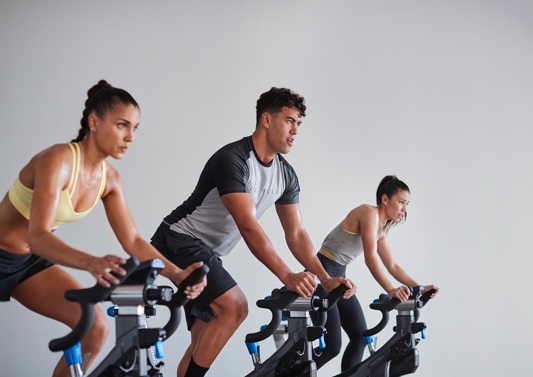A CIÊNCIA MOSTRA OS LANCHES QUE DEVEMOS NOS AFASTAR

Os alimentos ultra processados são carregados de aditivos, com baixa qualidade nutricional e alta densidade energética - coisas como salgadinhos, produtos de carne reconstituídos e refrigerantes. Apesar de estar ligado ao aumento do risco de câncer, maiores fatores de risco cardiovascular, obesidade e síndrome metabólica, a popularidade desses alimentos está em ascensão. Um estudo mostra que, nas duas décadas até 2010, o consumo de alimentos ultra processados quase triplicou, chegando a representar 32% da ingestão diária de energia. Agora um estudo de 15 anos com 19.899 graduados em universidades espanholas destacaram como mais de quatro porções diárias de alimentos ultra processados estão independentemente associadas a um aumento de 62% no risco de mortalidade por todas as causas. E se você adicionar outra porção à sua ingestão diária, o risco aumenta em 18%! Saiba mais sobre como comer alimentos ultra processados pode influenciar na sua saúde.
COMO O AUMENTO DA APTIDÃO FÍSICA PODE REDUZIR O RISCO DE CÂNCER DE INTESTINO E PULMÃO

Este ano, 228.150 pessoas serão diagnosticadas com câncer de pulmão, e a doença causará 142.670 mortes. Ao mesmo tempo, podemos esperar que 51.020 pessoas morrerão de câncer colorretal. De acordo com novas pesquisas, esses números podem ser drasticamente reduzidos se mais pessoas se concentrarem em melhorar sua forma física. No que se acredita ser o maior estudo desse tipo, pesquisadores da Escola de Medicina Johns Hopkins estudaram 43.143 homens e mulheres norte-americanos (de diversas etnias) realizando testes de estresse durante 18 anos. Eles descobriram que aqueles que desenvolveram os mais altos níveis de condicionamento reduziram seu risco de câncer de pulmão em até 73%. Essas pessoas também reduziram suas chances de desenvolver câncer colorretal em até 68%. Saiba mais sobre a ligação entre níveis de condicionamento físico e risco de câncer de pulmão e intestino.
O GRANDE ERRO DA VITAMINA D

Experts say we’re not getting enough vitamin D, a powerful nuclear receptor-activating hormone that is critical to the immune system and linked to the reduction in Type 1 diabetes. Some even believe the lack of adequate vitamin D supplementation has reached epidemic proportions, and that it may be the biggest medical mistake of the past century! It seems that a statistical error is part of the problem, and to reduce the risk of vitamin D-related disease we actually need 10 times more vitamin D than the Institute of Medicine’s recommendation. To date, there has been no evidence that higher blood levels of vitamin D are “unsafe”, and findings from Finland have made the value of vitamin D supplementation clear. Between 1964 and 1992 Finnish authorities continually and significantly reduced the daily vitamin D recommendation and at the same time the incidence of Type 1 diabetes increased remarkably (most notably, by 350 percent in children under the age of four). When authorities started fortifying all dietary milk products with vitamin D in 2006, all of a sudden the incidence of Type 1 diabetes plummeted. Learn more about the issues associated with vitamin D deficiency.
How many steps should you really be aiming for?

New Scientist has revealed that the 10,000 steps a day benchmark is not the gospel we’ve assumed it was. It seems there is plenty of evidence suggesting that you need at least 50 percent more than that for optimal health benefits. When calculating the ideal tally, it’s important to note that not all steps are equal, cadence and intensity makes a difference – while any movement is good movement, it’s the steps we take during moderate to vigorous activity that provide the most value. An Australian study of 150,000 adults calculated that it takes at least 60 minutes of vigorous exercise each day to offset the health risks that come from sitting during work hours. An 8-year-long US study of 4840 adults shows that those who were active for 100 minutes or more each day had 80 percent lower mortality rates than those who were inactive. Discover more about how many steps a day you really need.
If you want more health and fitness inspiration simply sign up to Fit Planet and get the freshest insights and advice straight to your inbox.







